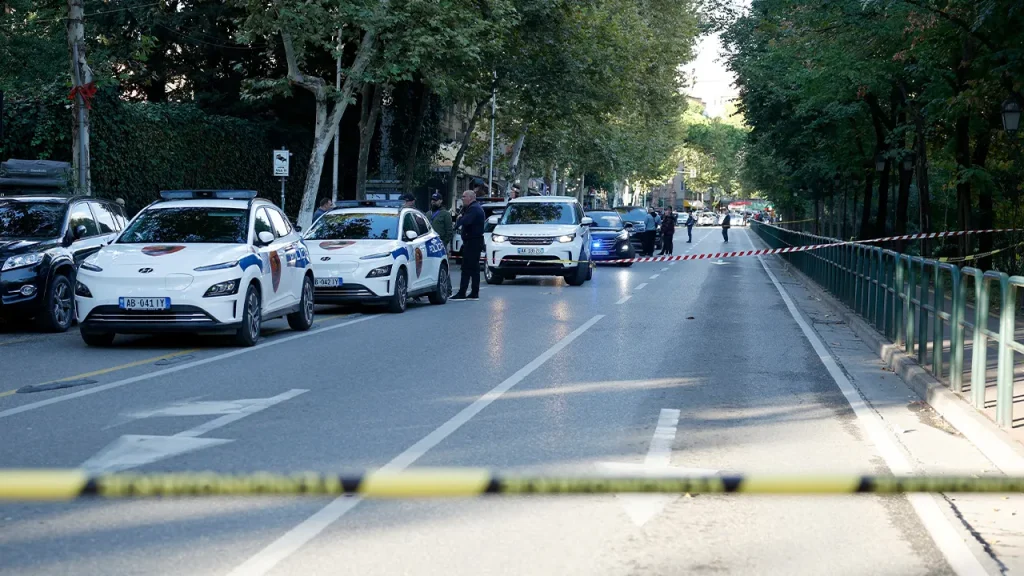Justice in Crisis: The Tragic Death of an Albanian Judge and Its Aftermath
The shooting of Albanian Appeals Court Judge Astrit Kalaja inside a Tirana courtroom on October 6 has become much more than a tragic isolated incident – it has exposed deep fractures within Albania’s judicial system and ignited nationwide outrage. Judge Kalaja, who was presiding over a property dispute, died from his wounds while two others were injured. While the 30-year-old suspect was quickly apprehended, the murder has uncovered something far more disturbing: a profound loss of faith in Albania’s justice system. This killing has become symbolic of the frustration many Albanians feel toward a judiciary they perceive as dysfunctional, politicized, and incapable of delivering timely justice.
The roots of Albania’s judicial crisis can be traced back to reforms implemented nearly a decade ago with support from the European Union and the United States. According to Agim Nesho, former Albanian Ambassador to the US and UN, these reforms were originally “intended to strengthen the rule of law” but have instead been “transformed into a political instrument, undermining democratic institutions and concentrating power in the hands of the executive.” This sentiment is echoed by opposition Democratic Party leader Sali Berisha, who described Kalaja’s murder as “an abominable act and an alarm bell that should not be ignored.” Perhaps most disturbing was the brief emergence of a GoFundMe campaign to support the killer’s legal rights, which Berisha sees as evidence of public “protest against a dysfunctional judiciary, against a corrupt and politicized judicial system.” When citizens begin sympathizing with those who attack judges, it signals a dangerous erosion of trust in fundamental institutions.
The implementation of judicial reforms appears to have created as many problems as it sought to solve. Berisha claims the reforms “left the country without a Constitutional Court and without a High Court for more than five years,” resulting in an overwhelming backlog of approximately 200,000 cases. The vetting process for judicial personnel, intended to root out corruption, has been characterized by critics as “a witch hunt against magistrates that were perceived [to be] independent or potentially right-leaning,” leading to what Berisha describes as the “weaponization of the judiciary against the opposition.” Besnik Muçi, a lawyer who previously served as a prosecutor and Constitutional Court judge, confirms that the current backlog consists of about 150,000 cases. The closure of five appeal courts and several district courts has “almost blocked the citizens’ access to justice,” leaving many Albanians without practical means to resolve legal disputes. When people expect timely justice and don’t receive it, they lose faith in the entire system.
A 2020 report on US assistance to Albania presents a different perspective, highlighting American and EU efforts to “restore the integrity of the Albanian justice system.” According to this report, USAID helped the High Court create procedures to manage 72% of its 35,000 backlogged cases. The report also notes that 125 of 286 judges and prosecutors who underwent vetting were “dismissed for unexplained wealth, ties to organized crime, or incompetence,” while another 50 judges resigned rather than face vetting. These figures suggest the reforms identified real problems within the judiciary, but the question remains whether the cure has proven worse than the disease. Berisha claims that legal disputes now take about 15-20 years to resolve, reinforcing the old adage that “justice delayed is justice denied.” The physical infrastructure of the courts also appears inadequate, with Muçi noting that most court buildings fail to “meet the security conditions and standards necessary” – a particularly poignant observation in light of Judge Kalaja’s murder inside a courtroom.
The immediate reaction to Kalaja’s killing demonstrated the depth of discontent within Albania’s legal community itself. The Korça Bar Association and National Bar Association of Albania boycotted court proceedings on October 9-10, with Korça Bar Association Director Nevzat Tarelli emphasizing the need for increased security for judicial personnel and acknowledging that people who don’t receive timely justice “no longer have faith in justice.” When the very professionals who work within the system feel compelled to protest its conditions, it signals a system in profound crisis. Despite repeated requests for comment, Engjëll Agaçi, general secretary of Albania’s Council of Ministers, did not respond to questions about the nationwide discontent with the judiciary or the size of Albania’s court case backlog, suggesting possible reluctance by government officials to acknowledge the extent of the problems.
The American response to this judicial crisis has been notably muted. A State Department spokesperson declined to address questions about the success of US-backed judicial reform efforts in Albania or the systemic issues highlighted by Kalaja’s killing, offering only condolences to the victims and condemning violence against judges and prosecutors. This reticence stands in stark contrast to the significant role the US played in designing and supporting the judicial reforms now being criticized. As Albania continues to grapple with these profound challenges to its justice system, the central question remains: how can a nation rebuild trust in institutions meant to deliver justice when citizens have lost faith in the very concept that justice is possible? Judge Kalaja’s death serves as a tragic reminder that reforms on paper mean little if they fail to create a system where justice is not only fair but also accessible and timely for ordinary citizens.


